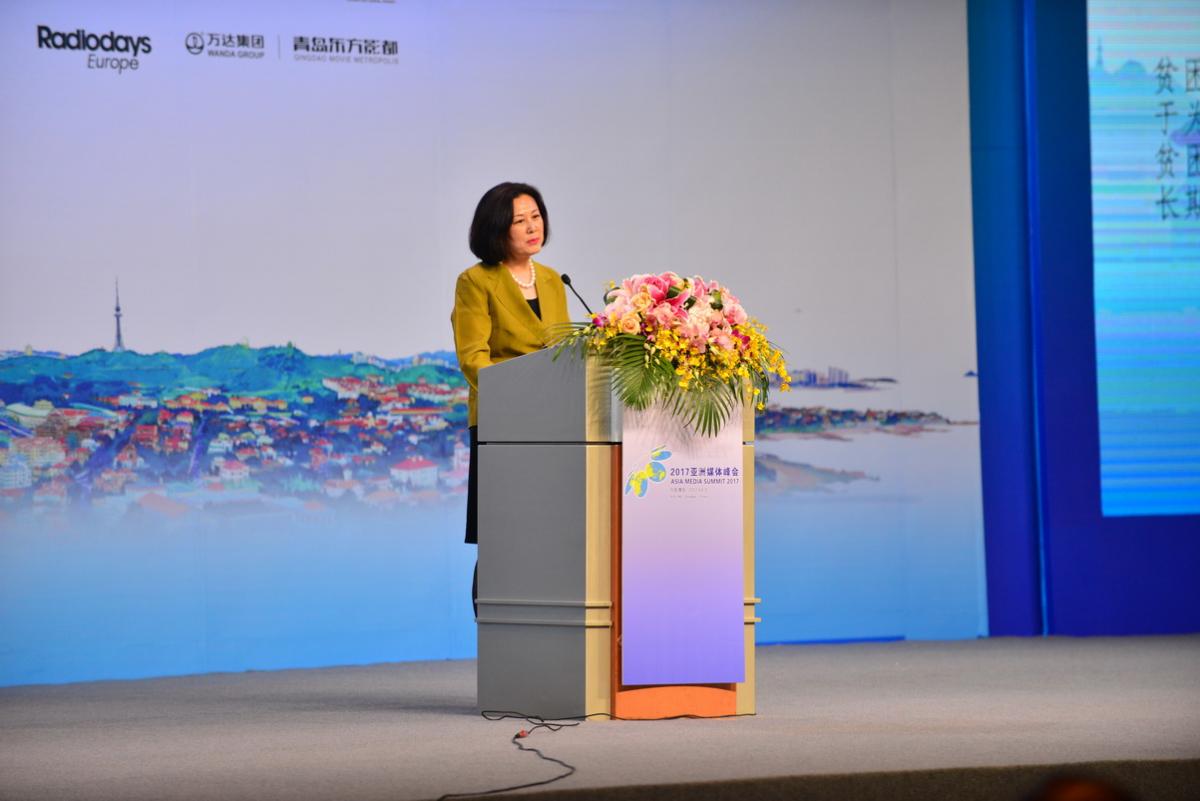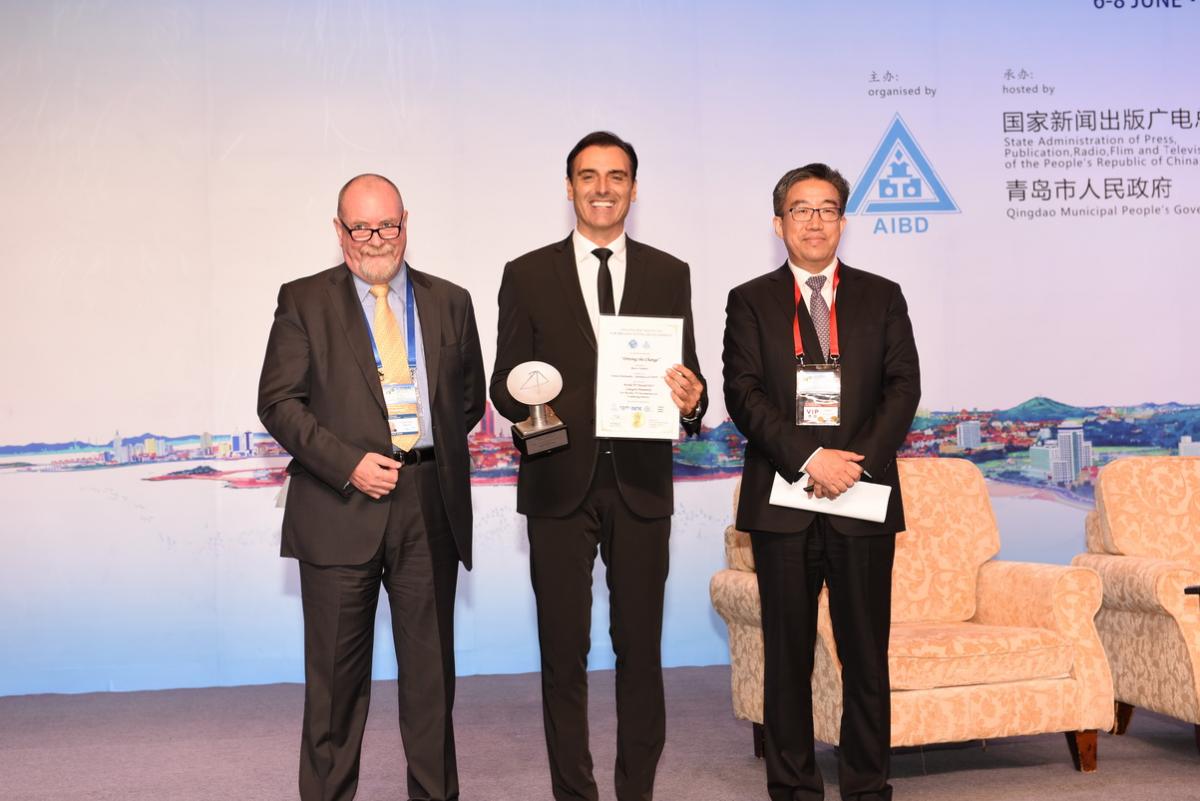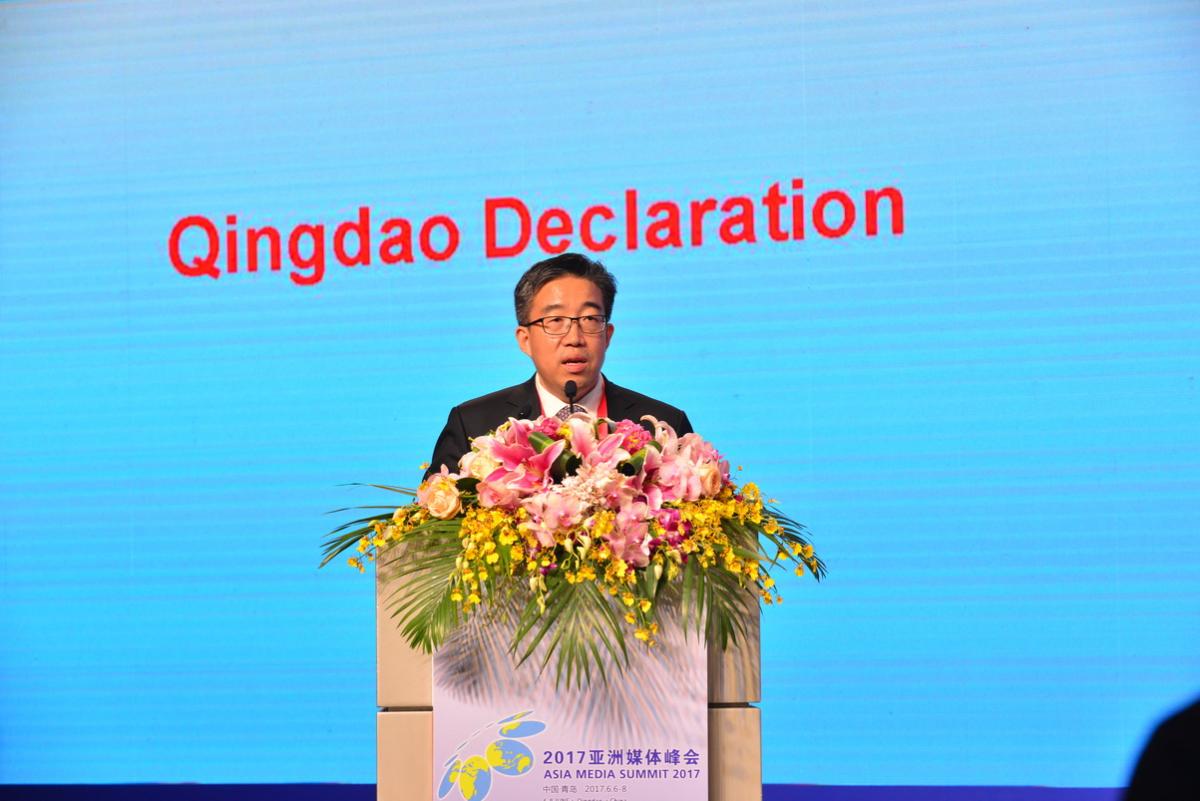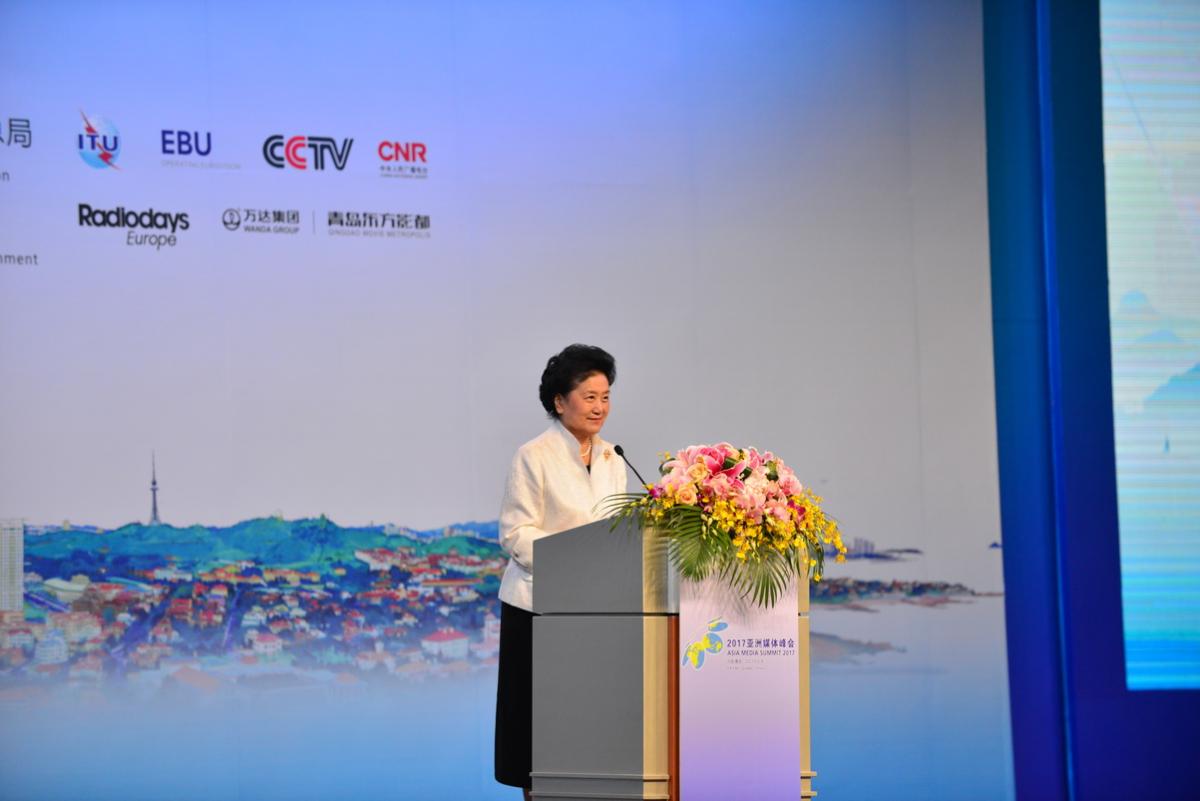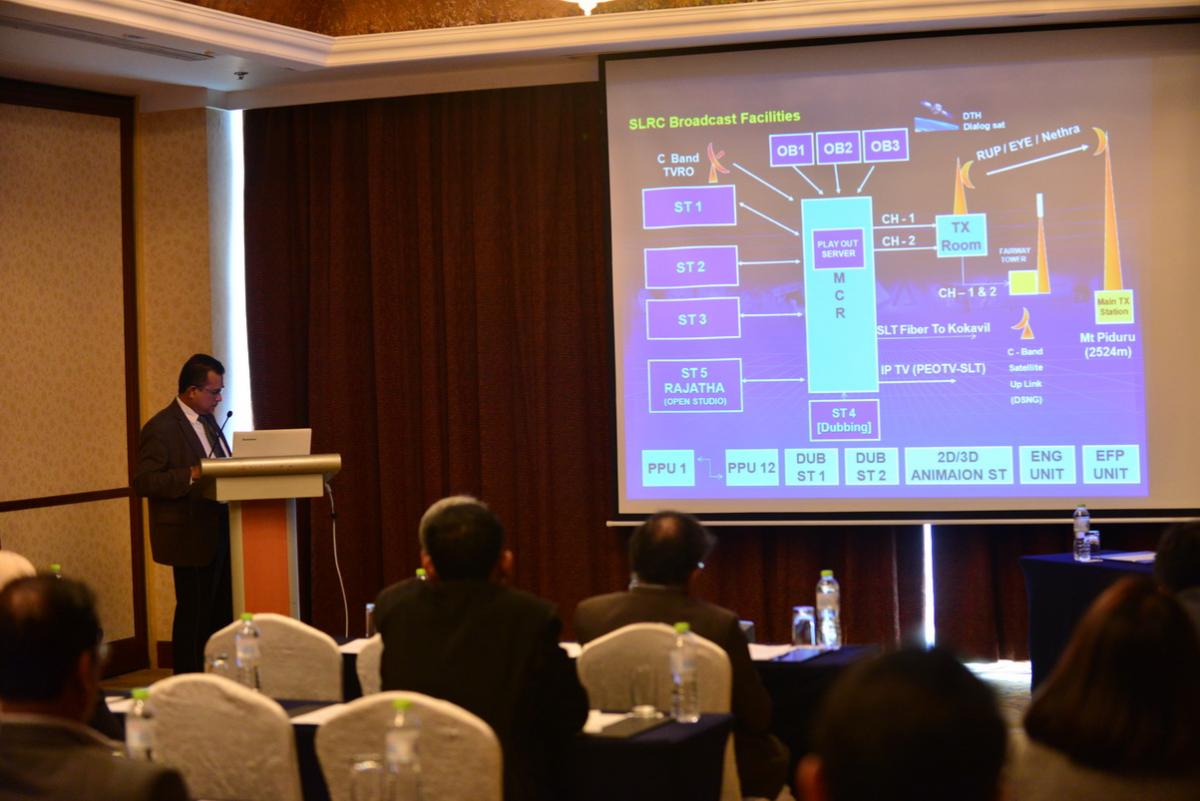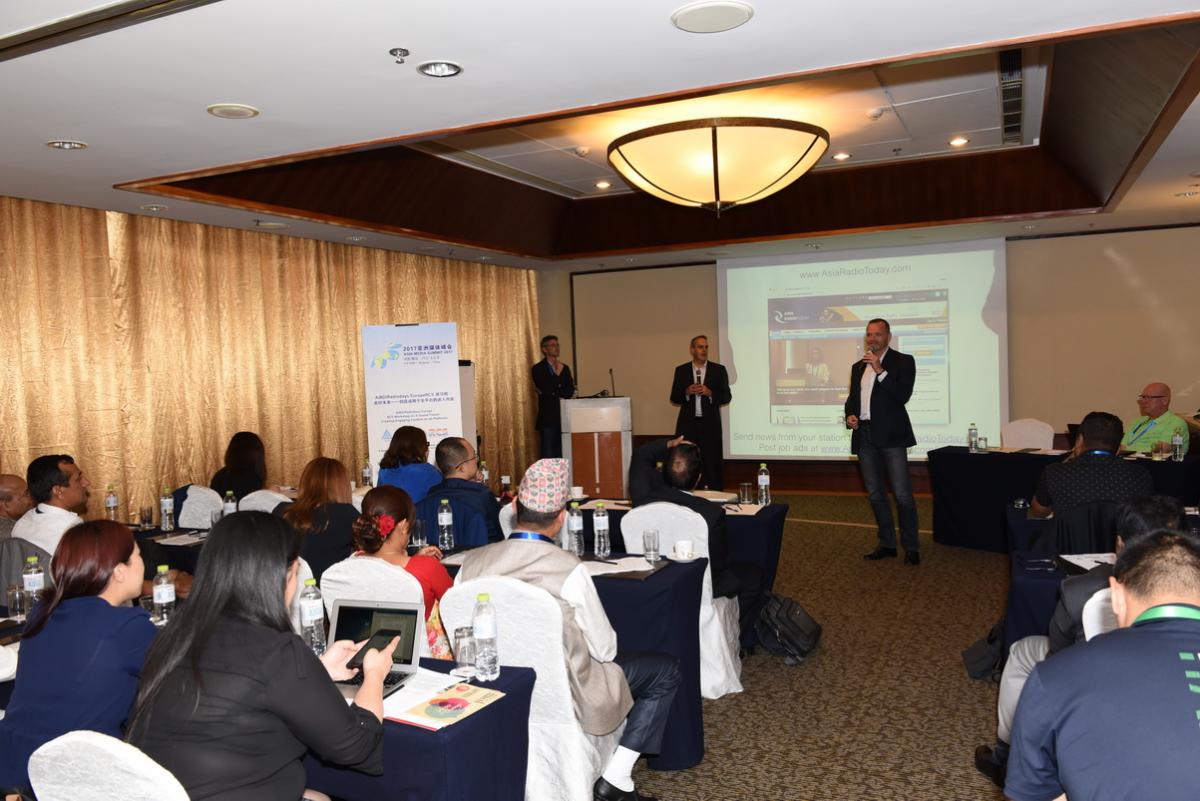The United Nations urges broadcasters in Asia Pacific to continue reporting on development issues, including the 17 Sustainable Development Goals (SDGs), while promoting pluralism and diversity of views.
In a message to the 14th Asia Media Summit participants, Amina J. Mohammed, Deputy Secretary General of the United Nations, stressed media’s critical role in engaging and inspiring people, connecting communities, as well as holding governments accountable.
The United Nations urges broadcasters in Asia Pacific to continue reporting on development issues, including the 17 Sustainable Development Goals (SDGs), while promoting pluralism and diversity of views.
In a message to the 14th Asia Media Summit participants, Amina J. Mohammed, Deputy Secretary General of the United Nations, stressed media’s critical role in engaging and inspiring people, connecting communities, as well as holding governments accountable.
Ms Hua Jiang, Director of News and Media Division, Department of Public Information, United Nations, read Ms Mohammed’s message at the opening ceremony of the Asia Media Summit. More than 400 local and foreign broadcasters from Asia Pacific, Europe, Africa and latin America attended the Summit from 6-7 June 2017 in Qingdao city, China.
“If we are to fully engage citizens in understanding why the Goals matter to them and what they can do to make a change, we need your dynamism, creativity and commitment to make it real”, she said.
The UN-led SDGS aim ‘to end poverty, protect the planet, and ensure prosperity for all as part of a new sustainable development by 2030.’
Ms Mohammed said the United Nations counts on media, through their programmes and decisions, to help inform audiences about the sustainable development agenda and how they can become engaged.
“Working together, we can drive sustainable change around global issues”, she pointed out.
She commended AIBD for organising the conference around the theme of the SDGs.
Ms Irina Bokova, Director-General of UNESCO, also sent a message to the Asia Media Summit, saying empowering women and girls should be a priority concern.
Stressing that “education is a human right and also a multiplier for more inclusive and sustainable development,” Ms Bokova said 62 million girls are denied basic education and only 60% of countries across the globe have achieved parity in primary education.
She urged media to stand at the heart of efforts to ensure better access to education for these groups.
Her message was read by Dr Marielza Oliveira, Director and UNESCO Representative to China, Democratic People’s Republic of Korea, Japan, Mongolia and Republic of Korea.
UN Calls on Media to Engage Audiences on Development Issues
The United Nations urges broadcasters in Asia Pacific to continue reporting on development issues, including the 17 Sustainable Development Goals (SDGs), while promoting pluralism and diversity of views.
In a message to the 14th Asia Media Summit participants, Amina J. Mohammed, Deputy Secretary General of the United Nations, stressed media’s critical role in engaging and inspiring people, connecting communities, as well as holding governments accountable.World TV Awards 2017 – Winners & Runners-Up Announcement
The winners and runners-up of the World TV Awards 2017 were announced on the 7 June during the Asia Media Summit which took place in Qingdao, China.
Qingdao Declaration on Media and the World’s Sustainable Development Qingdao, China, June 7, 2017
Preamble:
Mindful of the pressing challenges facing our world, among them, poverty, conflict, socioeconomic inequality, environmental degradation and climate change that call for urgent and concerted action to accelerate development and progress in our society;
Noting that there are several creative and innovative mechanisms to achieve sustainable development, appropriate to every country’s own needs, expectations and pace of development, and demanding participation and support from government, private sector, civil society, local communities, families and individuals alike;
Enhance Media Exchanges and Cooperation to boost Global Common Development Speech at the Opening Session of Asia Media Summit 2017 Qingdao, June 6, 2017
President Ali-Askari,
Director Chang Jin,
Distinguished Guests,
Ladies and Gentlemen,
Dear Friends,
Good morning!
In this lovely season of midsummer, flowers blooming like a piece of brocade. I’m delighted to come to the coastal city of Qingdao, with representatives from 48 countries and 7 international organizations, for the opening session of Asia Media Summit 2017. Let me begin by extending warm congratulations on the opening of the Summit. I’d like to convey sincere greetings and best wishes to all the distinguished guests coming from afar, as well as participants from the Film Capital Summit!
Press Release
The 14th Asia Media Summit (AMS), opened in Qingdao, China on the 6thof June, ended on the 8th of June. With the theme ‘Media on the Frontline of Global Development’, the Summit focused on the many important roles media play in promoting sustainable development besides presenting dialogues and debates on a series of hot topics. Most importantly the AMS passed the Qingdao Declaration on Media and the World’s Sustainable Development. Delegates to the Summit hailed it as a new starting point for efforts in promoting the world’s sustainable development, and further enhancing ties between media organisations in the Asia-Pacific region and those of the world.
China’s Vice Premier Madame Liu Yandong delivered the keynote address in the Inaugural Session, attended by more than 450 delegates including government leaders, executives and experts from media organisations in Asia-Pacific and the world. The summit also provided the platform for UN and UNESCO officials to deliver special messages from Deputy Secretary-General of UN Madame Amina J. Mohammed and Director-General of UNESCO Madame Irina Bokova.
Dealing with the Challenges of Digital Migration
The ITU Regional Office for Asia and the Pacific says costs, enormity of task, lack of government support and cooperation among stakeholders, and ever evolving technologies remain as some of the challenges in the migration from analogue to digital in the region.
“Not only does the setup of infrastructure for digital but also carrying out a simulcast service for a given period involve a lot of money and resources. On top of these the need to subsidise set- top-boxes to masses is an additional burden,” said Mr Wisit Atipayakoon, Programme Officer of the ITU Regional Office for Asia and the Pacific, Bangkok before participants at the AIBD/ITU/ABU regional workshop on “Digital Terrestrial Broadcasting TV and Radio Policy and Transition,” on 5 June 2017 in Qingdao, China.Enhancing Audiences Viewing Experience through Virtual Reality Technology
The use of virtual studio and virtual studio implantation technology is bringing a new visual experience for the TV audience, and providing new thinking and creative new tools for television producers.
They are applications of the virtual reality technology and are becoming a new trend in the broadcast industry in Asia Pacific, Mr Huang Lei, Product Manager, Jetsen Technology Co. Ltd, Beijing, said in his presentation at a pre-summit regional workshop on augmented reality on 4 June 2017 in Qingdao, China. The workshop is a partnership among AIBD, Jetsen Technology Co., Whaley, and Bang Productions.
Radio Stations Urged to Understand and Love their Listeners
A winning strategy for radio stations must consider the listener, brand. Content and promotion.
They must learn to understand and love their listeners who, after all, decide the shape of their brand. “ Everything a radio station does in the air must be entertaining, useful, interesting to their listeners, and connecting to their heart, head and hand,” says Francis Currie, international radio consultant, trainer and coach, UK. Mr Currie spoke at the AIBD/Radiodays Europe/RCS Presummit workshop on “A Sound Future-Creating Engaging Content on all Platforms, held on 5 June 2017 in Qingdao, China. Some 31 participants from 16 countries in Asia-Pacific and Africa attended the workshop.Constructive Journalism: Bringing Back Journalism to its Core Values
A new approach to deal with sensationalism and negativism in news that are increasingly turning off audiences and pushing them to trust media less and care less about the world is the application of constructive journalism. Constructive journalism can “ empower audiences to have an accurate view of the world and also learn about solutions, not just problems, what’s working and not just what’s not working” Mr Mark Egan, a mobile video specialist and faculty member of EuroVision Academy, said,
Golden Ribbon Awarding
On the first anniversary of the establishment of the "Belt and Road Media Community", the "Golder Ribbon" Awarding of Excellent TV Programs will be launched. The Awarding is hosted by China International Television Corporation (CITVC) andorganized by China Radio, Film and Television Programs Exchanging Center (CHNPEC)



